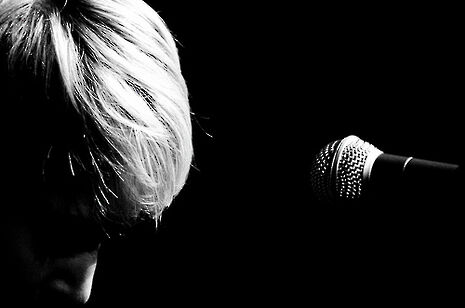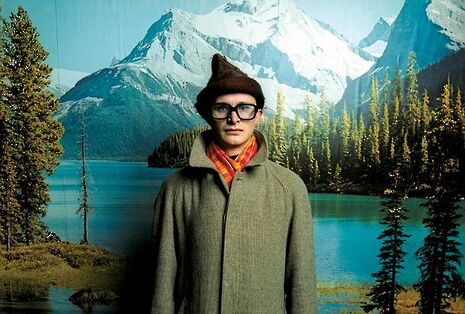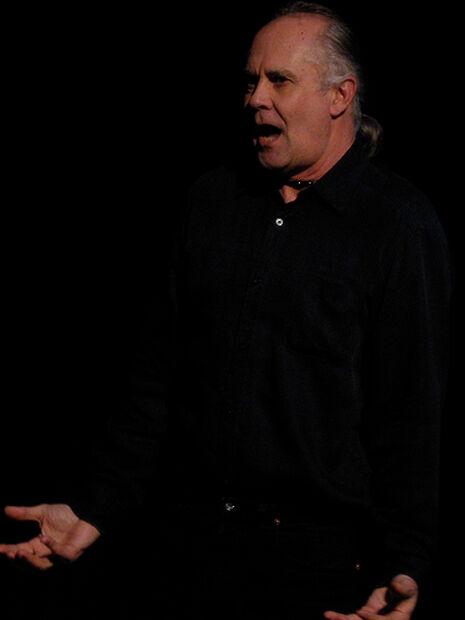Slam: Page Meets Stage
In anticipation of Hammer and Tongue’s arrival in Cambridge next week, Joanna Tang discusses the history and future of Slam poetry

The performance poet Jean Howard described the performance nights organised by fellow poet Marc Smith in a bar in north Chicago, 1986: “Local neighbourhood patrons trying to watch a Cubs game and down a beer would find themselves being assaulted by poets utilizing wild gestures, musical instruments, boom boxes, costuming, and theatrical make-up...”
They were aggressive tactics. But they were necessary for the birth of a poetry that cared whether you were listening. From the beginning, Smith targeted his poetry at popular audiences, and unconventional audiences. A construction worker turned poet disillusioned with poetry’s exclusivity within academia, Marc Smith refused to believe that was poetry was dead.
And the audiences listened. Slam poetry has gone on to enjoy enthusiastic believers worldwide, and an Individual World Poetry Slam is held annually. Britain’s National Poetry Slam is the longest running national slam outside of the US, but there are also the hundreds of slams are held across the country in clubs, pubs, theatres and festivals.
Slam poetry, competitive performance poetry, takes pride in the democratic principles on which it was founded. Audience members are the judges, whether the method is cheering or scoring. Only original poems are performed at slams. It was about shifting the power to the public. And when anyone can be critic, anyone can be judged by those critics to have poetic value.
This resistance of the pre-sanctioned results in a celebration of diversity, seen today in the variety of performers and performances at slams, which can draw on bordering forms of verbal art such as hip-hop or rap. A classically-trained singer, Fay Roberts organises Hammer and Tongue’s Cambridge show, and performs at events across the Midlands and South East. She says of her experience of slams:
“The first I attended was in my hometown of Cardiff, sometime in the mid-to-late-90s - it was raucous and punky, very lo-fi and passionate. In these ways slams haven't changed that much - they always welcome a variety of styles and voices which cross all sorts of demographic divides, and it can be very hard to predict what the audience will swing for. That's part of the excitement of course. Mind you, we do have one upgrade in technology - I use a laptop and spreadsheet for working out the final scores...”

Slam’s championing of diversity gave rise to its use as a platform from which people felt able to give expression to marginalised identities, which means that the poetry found at slams can be highly personal, even as it is combined with the interpersonal, in the more immediate and theatrical relationship between the poet and the audience.
The performance poet Kate Fox, a finalist in Radio 4’s National Poetry Slam, performs her poetry on Radio 4 and BBC2, and tours her one woman show nationally. She believes that performance poets create a unique relationship with their audience:
“I think that what happens in longer, non competition performances when a performer develops a relationship with an audience in a more relaxed way is fascinating. Any reader of their poetry who does this is a "performance poet" for the time that they do that (but many would consider the label an insult- partly because of the perceived opposition between "performance" and "authenticity").”

In 2011, the “Slam Papi”, Marc Smith, continues to perform every Sunday night at the Green Mill in Chicago, where the first slam took place. This same year, in Atlanta, Georgia, the Head-to-Head Haiku slam takes place as part of the Southern Fried Poetry Slam; in the West End, SLAMbassadors gives ten teenage finalists the chance to showcase their talents; and in Munich, on the U-Bahn from Central Station, last year’s winner of the Women of the World Poetry Slam surprises passengers.
What is the future for slam? According to Kate Fox, slam is starting to “get more funding and support as a non-commercial art form, and is being used more widely as an educational tool, whilst also developing its own reflective practice and criticism.” She cautiously expresses her hopes that slam and other performance poetry will integrate into other art forms, like music and comedy, and into academia. Whether it diversifies, or remains a countercultural grassroots movement, the pressure will be for it to remain true to its original aims in reaching out to the people and preserving a rawness that sometimes poetry forgets.
Hammer & Tongue is coming to Cambridge on Wed 15th June, 20:00 at The Emperor. Click here for details.
(Top photo by Very Quiet via Flickr/ CreativeCommons
Marc Smith by Elizabeth McQuern via Flickr/ CreativeCommons)
 News / Fitz students face ‘massive invasion of privacy’ over messy rooms23 April 2024
News / Fitz students face ‘massive invasion of privacy’ over messy rooms23 April 2024 News / Cambridge University disables comments following Passover post backlash 24 April 2024
News / Cambridge University disables comments following Passover post backlash 24 April 2024 Comment / Gown vs town? Local investment plans must remember Cambridge is not just a university24 April 2024
Comment / Gown vs town? Local investment plans must remember Cambridge is not just a university24 April 2024 Comment / Does Lucy Cavendish need a billionaire bailout?22 April 2024
Comment / Does Lucy Cavendish need a billionaire bailout?22 April 2024 Interviews / Gender Agenda on building feminist solidarity in Cambridge24 April 2024
Interviews / Gender Agenda on building feminist solidarity in Cambridge24 April 2024





